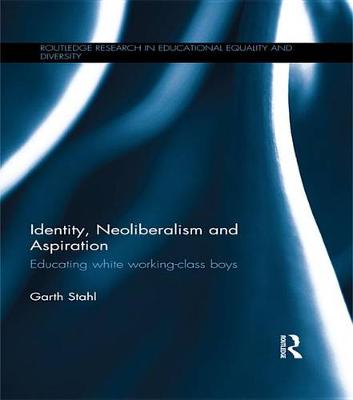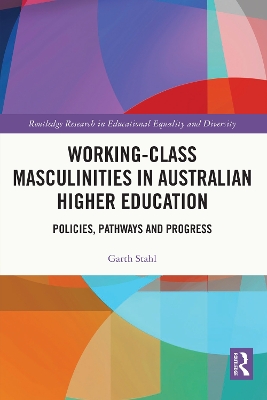Routledge Research in Educational Equality and Diversity
2 total works
In recent years there has been growing concern over the pervasive disparities in academic achievement that are highly influenced by ethnicity, class and gender. Specifically, within the neoliberal policy rhetoric, there has been concern over underachievement of working-class young males, specifically white working-class boys. The historic persistence of this pattern, and the ominous implication of these trends on the long-term life chances of white working-class boys, has led to a growing chorus that something must be done to intervene.
This book provides an in-depth sociological study exploring the subjectivities within the neoliberal ideology of the school environment, in order to expand our understanding of white working-class disengagement with education. The chapters discuss how white working-class boys in three educational sites enact social and learner identities, focusing on the practices of 'meaning-making' and 'identity work' that the boys experienced, and the disjunctures and commonalities between them. The book presents an analysis of the varying tensions influencing the identity of each boy and the consequences of these pressures on their engagement with education.
Drawing on Bourdieu's theoretical tools and a model of egalitarian habitus, Identity, Neoliberalism and Aspiration: Educating white working-class boys will be of interest to academics, researchers and postgraduate students in the field of sociology of education, and those from related disciplines studying class and gender.
This book takes a critical view of masculinities through an investigation of first-in-family males transitioning to higher education. Drawing on six in-depth longitudinal case studies, the focus is on how young men from working-class backgrounds engage with complex social inequalities, as well as the various capitals they draw upon to ensure their success. Through the longitudinal approach, the work problematises the rhetoric of 'poverty of aspirations' and foregrounds how class and gender influence the lives and futures of these young men. The book demonstrates how the aspirations of these young men are influenced by a complex interplay between race/ethnicity, religion, masculinity and social class. Finally, the book draws connections between the lived experiences of the participants and the implications for policy and practice in higher education.
Drawn from a larger research project, each case study compels the reader to think critically regarding masculinities in relation to social practices, institutional arrangements and cultural ideologies. This is essential reading for those interested in widening participation in higher education, gender theory/masculinities, longitudinal research and social justice.

